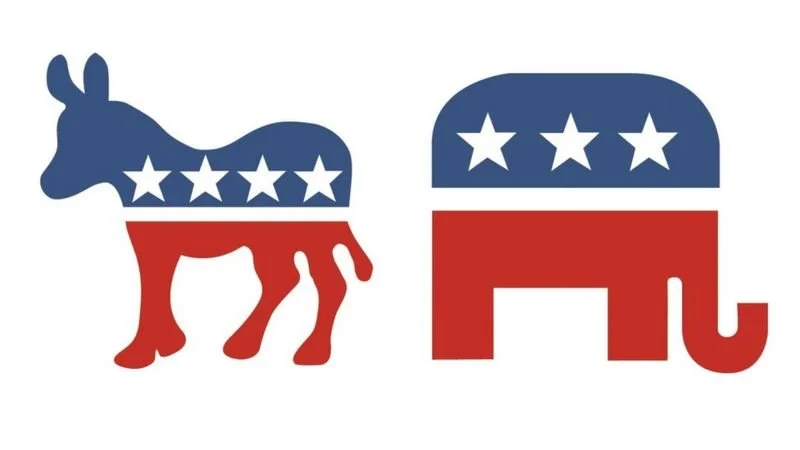Don Pesci: Beware Democrats' ‘government of force’
VERNON, Conn.
Connecticut Gov. Ned Lamont has probably learned more than he has been willing to say from recent state and municipal elections
If one could stretch Lamont out on a comfortable couch and peek into his political psyche, one might find him sharing space with Virginia’s new governor-elect, Glenn Youngkin, and the bête noir of the progressive wing of the national Democratic Party, Sen. Joe Manchin, of West Virginia.
Manchin is something of a Democrat budget hawk, whose hectoring, residual moderates believe, is very much needed in a party that has adopted improvident spending as an operative political principle.
Singing from the balcony of the party’s once vibrant moderate center are =. House Speaker Nancy Pelosi, Senate Majority Leader Chuck Schumer, and the lead choir boy, President Biden, all of whom have borrowed hymns from socialist Bernie Sanders's progressive song book.
Budget watchers generally agree that the redistributionist Democratic Party budget, as well as the ideological arc in the once moderate party, has been heavily influenced by Sanders’s eccentric socialistic notions. There are in political parties king makers and budget makers. Sanders and members of the so called "Squad" have become important leftist budget and policy makers in the Democratic Party.
Ideology, the fierce commitment to a political doctrine, is the iron bar in the politics of force. What, we may ask, is the opposite of the politics of force? Surely, few will disagree that its opposite is the still revolutionary notion that government derives its authority to govern from the consent rather than the conquest by power and force of the governed.
Asked shortly after the polls had closed in Virginia whether he thought “the sagging poll ratings of President Biden could affect next year’s elections for Congress and governors’ offices around the country,” Lamont first quipped that “he had spent time Tuesday night,” when election returns were rolling in, “watching the final game of the World Series,” according to a report in a Hartford paper.
Two days later, Lamont was less flippant. The shadow of the New Jersey race had fallen over many Democrats. In New Jersey, Democratic Gov. Phil Murphy won re-election by a breathtakingly small margin, according to Politico: Murphy 1,285,351, Jack Ciattarelli 1,219,906.
Lamont told a reporter, “I certainly feel like there’s a sense that the middle class is getting slammed, but I’ve felt that since I’ve been governor … I think that dysfunction in Washington, D.C., put a cloud on Democratic races…They did have a big tax increase in New Jersey, which I think got people’s attention. We’re in a very different place here in Connecticut. I’ve got to talk to Phil and see what else I can learn from that.”
During his first year in office, Biden, Pelosi and Schumer together have been the principal force leaders in their party. Both have threatened to eliminate the Electoral College in favor of the election of presidents by popular vote, a measure that would allow large population centers, mostly on the East and West coasts, to deprive small states and low-population-density areas of the country of an equitable voice in presidential selection. This measure, like the packing of the Supreme Court, would in the short run benefit a Democratic Party that values force above government action tempered by constitutional restraints. {Editor’s note: A constitutional amendment would be needed to eliminate the Electoral College.}
None of the force leaders in the Democratic Party have hesitated to use the power of government agencies to enhance their own political standing with the American public. The recently concluded elections are the first indication that the American public is, in both the pre- and post-COVID-19 epoch, generally opposed to a mode of governance that has succeeded elsewhere in the world only through the sustained application of the kind of persistent force that raises its horned head in every page of Machiavelli’s The Prince. Pelosi’s own daughter, intending to bestow a compliment, said of her mother, “She’ll cut your head off, and you won’t even know you’re bleeding,” a frighteningly accurate description of the politics of force.
Governments of force are the same everywhere – boringly vicious. Their shared characteristics are: the use of government agencies, unaccountable to the general public and not easily dismissed, to subvert the representative principle, traditional democratic government and the rule of law; the pitiless demonization of political opponents, an over reliance on propaganda and government imposed sanctions; a reliance on messaging, rather than practical and efficient policies, to capture the affections of the general public; and the transference of wealth and decision-making from the private marketplace to an overweening and seemingly omnipresent central government.
“Character,” said Thomas Paine, when the American experiment in republican government was yet in its infancy, “is better kept than recovered.”
If Lamont were a close student of history, rather than a millionaire whom fortune has blessed, he would understand why Biden’s approval ratings are abysmally low, 38 percent by at least one poll, understand what happened in in New Jersey, understand why Democrats are losing their grip on unaffiliated voters, as well as soccer moms, and why it is much easier to keep liberty, justice, constitutional government, the republic and a decentralizing power principle – the separation of the three branches of government – than it would be to restore the characteristics of the American experiment in freedom and representative government after the essential nature of the country had been deformed -- not reformed -- by leftists with knives in their brains.
Don Pesci is a Vernon-based columnist.
